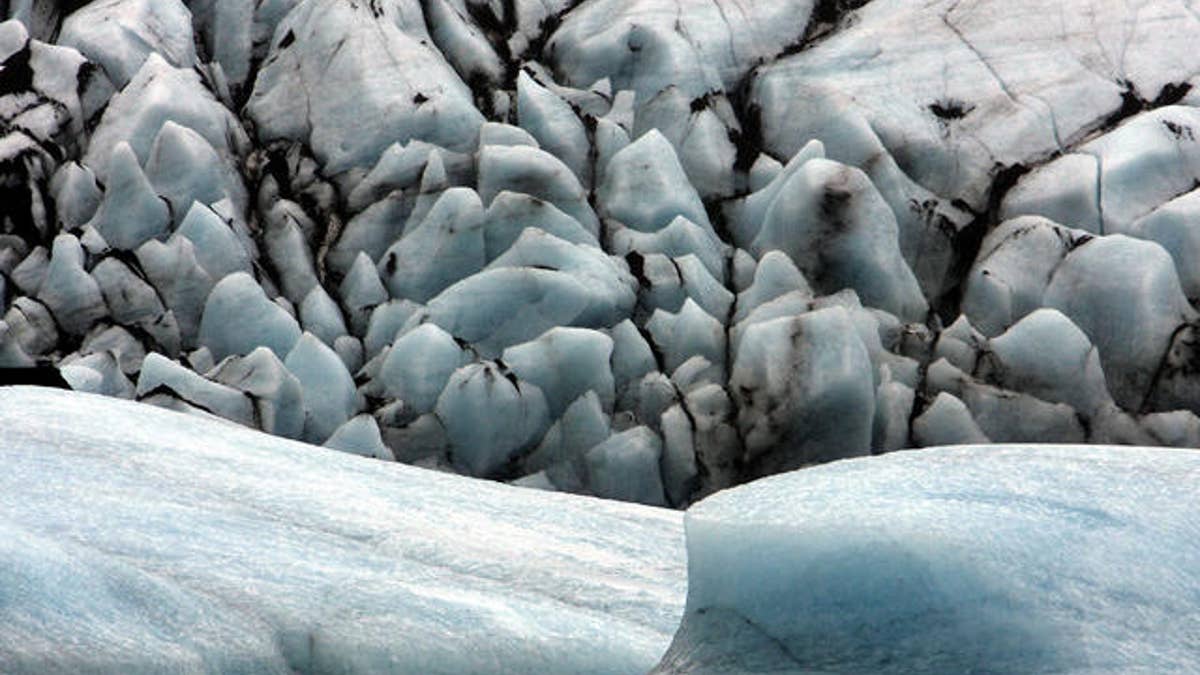
AP
Let it go.
That’s the frosty message University of Oregon researchers are getting over a widely-ridiculed study on “gender and glaciers” that cost taxpayers a big chunk of cash.
Researchers at the school published a scientific study examining the “relationship between gender and glaciers” as part of a federally-funded government grant from the National Science Foundation.
The paper, titled “Glaciers, gender, and science" and authored by University of Oregon professor Mark Carey, found that “ice is not just ice” and called on scientists to take a “feminist political ecology and feminist postcolonial” approach when researching glaciers and climate change.
The study, which centers around "feminist glaciology," was published in January and was part of a nearly half million dollar federal grant, according to The Free Beacon and College Fix -- though it's unclear how much of the $412,930 in funds went specifically toward Carey's paper.
“Glaciers are key icons of climate change and global environmental change,” Carey wrote. “However, the relationships among gender, science, and glaciers -- particularly related to epistemological questions about the production of glaciological knowledge -- remain understudied."
"Merging feminist postcolonial science studies and feminist political ecology, the feminist glaciology framework generates robust analysis of gender, power and epistemologies in dynamic social-ecological systems, thereby leading to more just and equitable science and human-ice interactions,” the paper reads.
Writing on Powerlineblog.com, Steven Hayward called the study
"academic gibberish," and said he initially thought the paper was
parody.
“I’m sure Carey is well-intentioned, but if his goal was to put a human face on climate change, he failed, Robby Soave wrote in Reason magazine. “The paper is simply impossible to read with a straight face. It employs liberal buzzwords -- colonialism, marginalization, masculinist discourses, etc. -- with such frequency that the entire thing comes off like a joke.”
The University of Oregon said in a Feb. 26 press release that Carey hired undergraduate student Jaclyn Rushing to "explore how nongovernmental organizations were addressing melting Himalayan glaciers."
"Her dive into the literature found that women's voices are rarely heard in glacier-related research, a finding that triggered a larger project and led to a paper now online ahead of print by the journal Progress in Human Geography," the statement said.
The press release went on to quote Carey as saying, "Jaclyn found a report that noted how women are more vulnerable to glacier changes and hazards than are men."
"I had never researched these gendered vulnerabilities," said Carey, an associate dean of the Clark Honors College and a professor of history and environmental studies.
Carey did not respond to a request for comment when contacted Tuesday.
The National Science Foundation funded the study as part of a project that initially set out to “examine the early development and subsequent evolution of the five main aspects of glaciology," according to The Free Beacon.
The paper poses the question, “Why feminist glaciology?” and then answers it by arguing that scientific research of glaciers has been “dominated by men and masculinity.”
"Most existing glaciological research -- and hence discourse and discussions about cryospheric change -- stems from information produced by men, about men, with manly characteristics, and within masculinist discourses,” the paper says.

